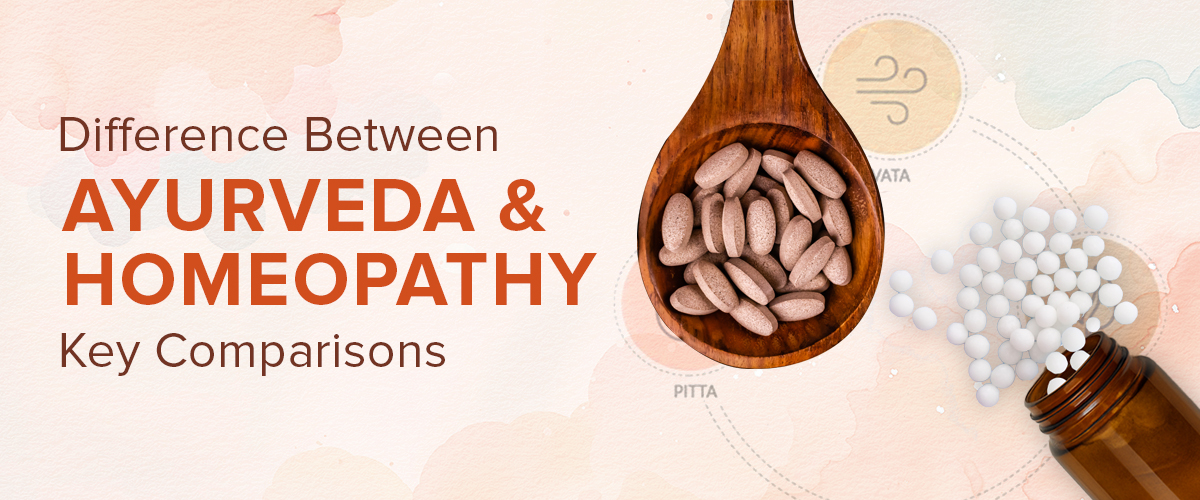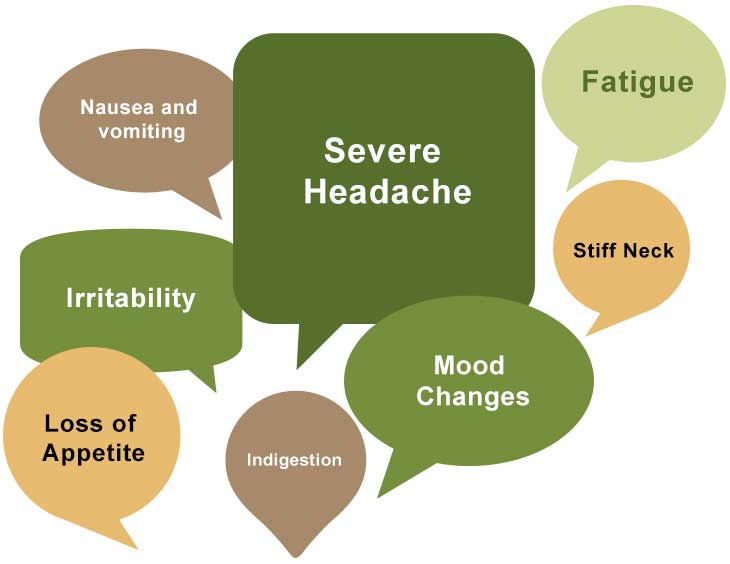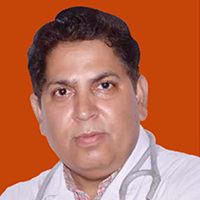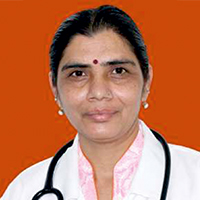In India, traditional medicine plays an extremely important role in our lives. A report published in Journal of Traditional and Complementary Medicine found that 36% of individuals chose Ayurveda as their preferred alternative therapy, followed by Naturopathy and Homeopathy.
Homeopathy and Ayurveda are prominent systems of alternative medicine in India. Ayurveda is more focused on natural herbs, dietary and lifestyle modifications and it aims at balancing your body’s energies for better health. On the other hand, Homeopathy originated in Germany in the late 18th century on the principle of "like cures like," using highly diluted substances to stimulate the body's self-healing mechanisms.
In this blog, we will help you understand the distinctions between Homeopathy and Ayurveda, so you can make better health choices. Each system has different approaches to treatment and knowing the differences between them will help you select the path which best matches your overall health requirements & beliefs.
What Are Homeopathy and Ayurveda?
Ayurveda and Homeopathy are both traditional systems of medicine with different beliefs and methods for improving your health and well-being.
What Is Ayurveda?
Originating over 5,000 years ago in India, Ayurveda is also known as the "Science of Life." It's not just a system of treating illnesses. Rather, it is a way of life which aims to maintain the balance between your mind, body and spirit. The fundamental philosophy of Ayurveda is to stop health issues at the root/source, follow a harmonious lifestyle and work with natural remedies.
Main Principles of Ayurveda
These are the main principles used in Ayurveda:
The Theory of Five Elements: Ayurveda thinks that all things in the universe including your body are composed of 5 fundamental elements : earth, air, fire, water and space. As a whole, these elements form 3 life forces or "doshas": Vata (space and air), Pitta (water and fire) and Kapha (earth and water).
Balance of Doshas: Your health is based on an overall sense of balance between these 3 doshas in Ayurveda. Each person has a unique mix of these doshas and this decides their mental and physical traits. An imbalance between these doshas is what leads to different diseases.
Holistic Treatment: Treatment in Ayurveda involves herbal medicines, diet, and lifestyle adjustments, meditation as well as yoga. The aim is cleansing the body from within and restoring balance. Part of this treatment involves detoxification via Panchakarma.
Customised Health Solutions: As each of us are unique, Ayurveda customises treatment plans according to your dosha balance, age, local climate and diet habits.
What is Homeopathy?
Homeopathy was started in Germany by Dr. Samuel Hahnemann in the late 18th century on the idea that the body could heal itself. It stimulates the healing process with small quantities of natural materials including minerals and plants.
Main Principles of Homeopathy
These are the main principles used in Homeopathy :
Law of Similars: This basic principle of Homeopathy says that a disease could be cured by a substance that produces similar symptoms in healthy people. For example, a substance which causes a disease in a healthy individual may be used to treat those symptoms in someone who's sick by supplying small quantities of the same substance.
Minimum Dose : Homeopathy uses only a minimal amount of medication to stimulate the body's defences. The substances are diluted to the point that they're regarded as leaving behind a "spirit-like" essence that aids healing.
Single Remedy: Generally just one remedy is prescribed for all symptoms, be it physical, psychological, and emotional.
Holistic Approach: Like Ayurveda, Homeopathy considers the whole person. What this means is that the treatment options are individualised according to the client's history, body type and psychological state.
How Did Ayurveda and Homeopathy Originate?
Let us now understand how these two systems of medicine started originally:
Origins of Ayurveda
Ayurveda is among the first holistic healing methods in the world, having been in use for over 5,000 years ago.
Historic Insights: Ancient Indian sages or 'rishis' meditated, observed the nature around them and gathered wisdom about daily life and health. These insights were recorded in holy texts called the Vedas (mainly Atharvaveda).
Important Texts: Texts including the Charaka Samhita and the Sushruta Samhita outlined Ayurveda's philosophical, spiritual and practical health methods which includes herbal medicines and surgery.
Origins of Homeopathy
Homeopathy is a fairly recent healthcare approach founded in the late 18th century by German doctor Samuel Hahnemann.
- The Spark of Discovery: Not satisfied with the detrimental health methods of his time, Hahnemann found interest in translating a medical treatise on cinchona bark for malaria. He found that substances that cause diseases could cure similar symptoms in sick individuals if taken in small doses.
- Advancement of Homeopathy: This resulted in the "law of similars," the basis of Homeopathy. Hahnemann tested substances and recorded their effects in 'provings'. His detailed records were the basis of Homeopathy's materia medica.
- A Gentler Approach: Where mainstream medicine offered harsh treatments like bloodletting, Homeopathy provided a more gentle strategy to strengthen the body's natural defences.
How Do Ayurveda and Homeopathy Diagnose Illnesses?
Whenever you feel like your health is not at 100%, understanding why this is happening is the first step for getting better. Ayurveda and Homeopathy diagnose health problems differently, based upon their unique healing philosophies. Let us understand how these two conventional medical systems figure out what's wrong with your health?
Diagnostic Methods in Ayurveda
Understanding Imbalances: Ayurveda considers health issues as a consequence of a dosha imbalance in your bodies, particularly the 3 doshas: Vata, Pitta and Kapha.
Pulse Diagnosis (Nadi Pariksha): Ayurvedic practitioners feel your pulse at three points on your wrist, linked to a dosha. The nature of the pulse shows which dosha is imbalanced and how it is impacting your health.
Physical & Visual Exams: They also look at your tongue, skin and eyes and note how you generally appear.
Inquiry about Lifestyle and Diet: Expect questions about your lifestyle and what you consume, so they can assess what is impacting your doshas.
Holistic Assessment: After this full review, Ayurvedic professionals are able to understand your natural constitution (Prakriti) and current imbalances (Vikriti) and thereby prescribe personalised treatment.
Diagnostic Methods in Homeopathy
Individualised Approach: Homeopathy takes a highly individualised approach, and explores your individual experiences and symptoms.
Detailed Interviews: You'll discuss your physical symptoms along with your emotions, likes and dislikes, fears and dreams with your Homeopathic practitioner.
Building a Whole Health Picture: The objective is to paint a portrait of your respective psychological, emotional and physical states.
Finding the Correct Remedy: Based on the data collected during the interview, the professional will then recommend a remedy according to a "like cures like" rule designed to promote your body to repair itself.
What Are the Common Treatment Approaches in Ayurveda & Homeopathy?
When we talk about the treatment of illnesses, Homeopathy and Ayurveda have their own methods to restore balance in your body and improve your health. Let us see how each of these traditional health systems offer you choices to match with your preferences and health requirements.
Treatment Methods Used in Ayurveda
In Ayurveda, as we have already discussed, the emphasis is on maintaining balance and strengthening the body's natural defences. This is how this is generally done:
Natural Remedies: Ayurveda uses naturally available plants and herbs which have healing properties. According to the doshas that need to be balanced, your Ayurvedic doctor may advise Ashwagandha for energy boosting, Turmeric for inflammation or Triphala for digestion.
Dietary Changes: In Ayurveda, it is believed that what you eat directly impacts your doshas. Ayurvedic practitioners generally suggest a diet according to your dominant dosha to correct imbalances. For example, melons and cucumbers are cooling foods, and are suggested if you have a high Pitta dosha.
Detoxification (Panchakarma): This is a cleansing method which helps to rid the body of toxins (Ama). It can include therapies like oil massages, steam baths and cleansing enemas customised to your needs.
Yoga & Meditation: Since Ayurveda also deals with spiritual and mental wellness, yoga and meditation are frequently suggested to reduce emotional stress and improve mental clarity to help with balancing your doshas better.
Lifestyle Changes: As per Ayurveda, simple changes in your sleep and basic routine can help in maintaining good health in your future.
Treatment Methods Used in Homeopathy
Homeopathy deals with illnesses by administering things that could produce the same symptoms of the disease in a healthy individual. Homeopathic treatment generally includes:
Individualised Remedies: A homeopathic doctor will prescribe a certain remedy in small doses depending on your personal health interview. This remedy is made to activate your body's own healing response to the condition.
One Remedy at a Time: Unlike other medications which you take for various diseases, Homeopathy recommends one treatment for all symptoms. This helps in better tracking of treatment response.
Potentisation: This is a process in which the substances are diluted and shaken vigorously. They believe the more a substance is diluted and shaken, the better it helps to treat symptoms.
Holistic Treatment: Homeopathy considers your entire health, be it physical, psychological and mental. The treatment aims to cure the disease but also improve your complete health.
What Types of Conditions Do Ayurveda and Homeopathy Typically Treat?
If you're searching for natural means to manage your overall health issues. Ayurveda and Homeopathy are both relevant methods that can help you. Both these systems can adapt to nearly all health problems, from everyday ailments to more chronic issues. Let us see what types of conditions these systems typically treat:
Common Diseases Treated with Ayurveda
Ayurveda is holistic and aims at getting rid of the source of illness - not only symptoms. Listed here are common conditions which Ayurveda treats:
Digestive Disorders: Conditions like indigestion, constipation and acid reflux are best managed with Ayurvedic diet adjustments and herbal medications.
Stress & Anxiety: Ayurveda provides a healthy method of dealing with mental health concerns through meditation, yoga and herbal treatments.
Chronic Pain: Be it arthritis or back pain, Ayurveda uses custom therapies including oil therapy and massage treatments to reduce pain and inflammation.
Skin Conditions: Conditions like eczema, psoriasis and acne are managed with Ayurveda using a mix of topical and oral herbal preparations for cleansing and soothing the skin.
Respiratory Conditions: Ayurveda can help with respiratory issues like asthma and allergies using remedies which boost lung health and open your airways.
Common Diseases Treated with Homeopathy
Homeopathy is favoured for its minimalistic approach and generally used for chronic and acute conditions like:
Allergies: Homeopathic remedies modulate allergic reactions by relieving symptoms like sneezing, congestion, and itching.
Common Colds & Flu: Homeopathy could help reduce the severity and length of these infections by boosting the immune system.
Mental Health Problems: Homeopathic remedies can be used for the treatment of underlying emotional conditions including depression, anxiety and sleep disorders.
Skin Complaints: Homeopathy treats warts, acne and urticaria by focusing on the body’s reactions that lead to these symptoms.
Digestive Problems: Irritable bowel syndrome, constipation, and heartburn are also addressed in Homeopathy through individualised remedies.
Main Differences Between Homeopathy and Ayurveda
Let us now look at this detailed comparison table between Homeopathy v/s Ayurveda, showing the major differences across various aspects:
|
Aspect |
Homeopathy |
Ayurveda |
|
Origin |
Developed in Germany in the late 18th century by Samuel Hahnemann. |
Originated in India over 5,000 years ago, deeply rooted in ancient Vedic culture. |
|
Philosophy |
Based on the principle of "like cures like"; substances that cause symptoms in healthy people are used in diluted forms to treat similar symptoms in sick people. |
Focuses on balancing body, mind, and spirit through the regulation of three doshas: Vata, Pitta, and Kapha. Emphasises prevention and maintaining natural balance. |
|
Treatment Approach |
Uses highly diluted substances to stimulate the body’s healing processes. Treatments are highly individualised, based on a detailed personal health profile. |
Includes a broad range of treatments such as dietary changes, herbal medicines, yoga, and Panchakarma (detoxification therapies). Treatments are customised to balance doshas. |
|
Diagnostic Methods |
Relies heavily on in-depth consultation to capture a comprehensive symptom profile, including physical, emotional, and mental symptoms. |
Uses pulse diagnosis, tongue and physical examination, and a detailed lifestyle and dietary assessment to determine dosha imbalances. |
|
Treatment Duration |
Can vary; acute conditions may see quick relief while chronic conditions might require long-term treatment. |
Treatment duration can be long, especially for chronic conditions as the focus is on rectifying dosha imbalances and cleansing toxins. |
|
Safety and Side Effects |
Considered very safe due to the high dilution of substances, minimising risks of toxicity. Rare cases of initial symptom aggravation as part of the healing process. |
Generally safe when overseen by experienced practitioners. Certain herbs can interact with conventional medicines or be contraindicated in some conditions. |
|
Accessibility |
Widely accessible globally; remedies are available in many health food stores, pharmacies, and can be ordered online. Practitioners available worldwide. |
Highly accessible in India and areas with large Indian populations; growing accessibility in the West. Authentic treatments like Panchakarma may be region-specific. |
|
Cost-Effectiveness |
Generally cost-effective due to the low cost of remedies and the non-requirement of specialised equipment. |
Cost varies; herbal treatments and consultations can be affordable, but intensive treatments like Panchakarma may be costly. |
|
Common Conditions Treated |
Allergies, skin conditions, psychological issues, chronic pains, digestive disorders, and more, focusing on symptom relief. |
Digestive disorders, chronic pain, skin diseases, lifestyle disorders like diabetes and hypertension, mental health issues, aiming at holistic wellness. |
Conclusion
If you are also stuck between choosing the best natural healing methods for your health, this comparison between Ayurveda and Homeopathy might just give you the clarity you need. Where Ayurveda works on your overall balance with lifestyle changes, herbs, and detox, Homeopathy focuses on your specific symptoms and emotional patterns using tiny doses of natural substances.
No single method is better or worse, but it’s about what fits you. Maybe you prefer slow, steady changes that transform your routine, or maybe you want targeted, minimal treatment for quicker results. Whatever your choice, knowing the difference puts you in control of your health.
For further details, talk to a certified Jiva doctor now at 0129-4264323.
FAQs
What is the difference between Ayurveda & homeopathy (BHMS)?
Ayurveda is an ancient Indian medicine system which focuses on balancing the doshas through natural herbs, diet and lifestyle modifications. Homeopathy uses dilute substances to stimulate the body's own healing processes based on the principle of "like cures like".
Who is the father of homeopathy?
The father of homeopathy is German doctor Dr. Samuel Hahnemann, who created the system in the late 18th century on the idea of his doctrine "like cures like."
What is the difference between Ayurveda and allopathy?
Ayurveda utilises natural cures and lifestyle modifications to balance your body’s energies for better health, whereas allopathy (modern medicine) utilises synthetic drugs and surgery to cure or manage different diseases and symptoms.
What is a homeopathic doctor called?
A homeopathic physician is generally called a homeopath. These professionals treat patients with diluted natural materials based on the concept that the body can heal itself.
Is homeopathy practiced in India?
Yes, homeopathy is practiced widely in India and is among the recognised systems of medicine under government policy and degree programs.
Which is better, Ayurveda or homeopathy?
The decision between homeopathy and allopathy lies in your health needs and preferences. Ayurveda offers natural, holistic remedies with few side effects, whereas homeopathy is better for symptom-focused relief.































































